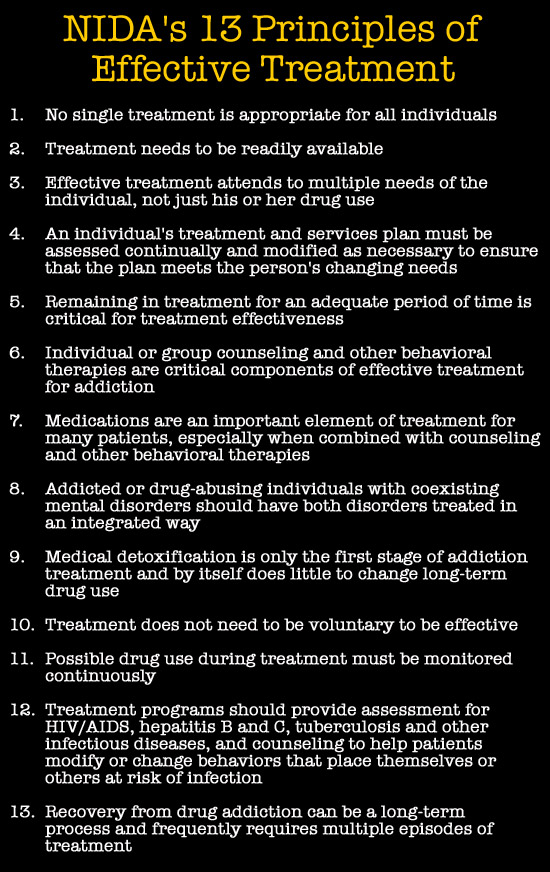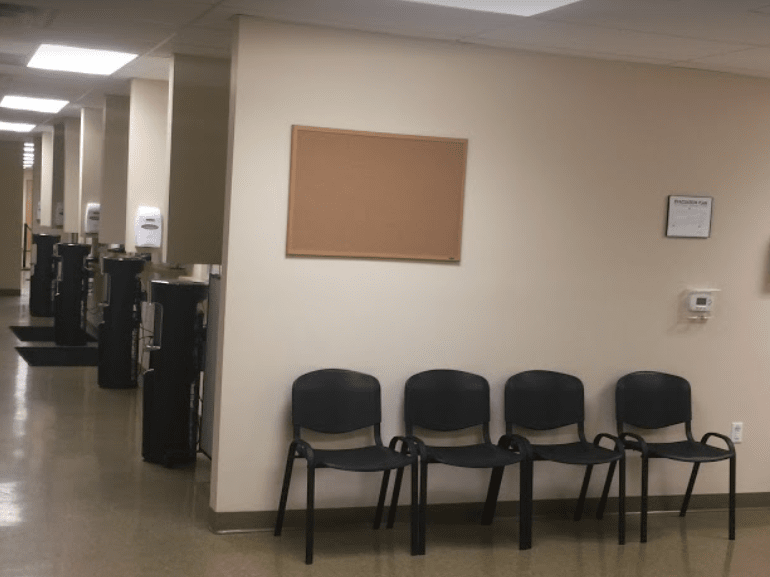For many people, the initial step toward healing is acknowledging their individual struggle with substance dependence. The next action is finding a treatment program that can help restore their overall health, wellness and joy. There are numerous treatment options an individual can select from. For instance, some individuals with serious kinds of addiction enter a detox program before transitioning into rehab.
After treatment, it is advised to continue reinforcing the lessons found out in rehabilitation by going to assistance groups and therapy sessions. Remember: there is no such thing as a "one-size-fits-all" method to dependency healing. Whichever treatment path you select, be sure that it has everything you require to assist you achieve a successful healing.
It will take a significant amount of determination and self-control to attain and preserve long-term sobriety. Nevertheless, you're never alone on this journey. Throughout rehabilitation, you'll build strong relationships with others in healing who can relate to what you're going through. In addition, your household, pals and other enjoyed ones have your finest interests at heart throughout this time.
Discover the ways dependency is treated listed below to much better understand what lies ahead. Treatment programs are different for each individual and can be tailored based upon their distinct requirements and scenarios. The most efficient kinds of treatment programs make sure that individuals in healing are actively included every step of the method.

During inpatient rehab, clients reside in a substance-free facility and receive ongoing medical care and restorative assistance. how to Visit this page get court order addiction treatment for adult. Inpatient rehabs are the very best option for individuals fighting chronic addiction, in addition to those who experience a co-occurring mental or behavioral condition. Outpatient rehabs are another kind of extensive addiction care.
Nevertheless, outpatient rehabs enable clients to live at home throughout the healing procedure. Patients can continue working and taking care of their families while attending scheduled treatment sessions throughout the week. It is essential to keep in mind that outpatient rehabilitations do not sequester clients Click for source from the genuine world; for that reason, patients are at higher danger of coming across triggers that challenge their sobriety.
Outpatient programs are also an exceptional "step-down" program after inpatient treatment and are often combined with sober living homes. Cleansing helps people securely withdraw from their from drugs or alcohol till it is no longer present in their system (why is methadone used as a treatment for heroin addiction?). It is often the very first step in dealing with people recovering from moderate to extreme forms of dependency.
How To Make Addiction Treatment Relevant Fundamentals Explained
Medications recommended during detox are often tapered down till the patient is no longer physically depending on addictive substances. Sober living homes run as a residential bridge between an inpatient treatment center and the go back to normal life. These are an excellent option for people in healing who need additional time strengthening what was discovered in rehabilitation.
Throughout detox and throughout treatment, clients may be recommended medications to aid with the healing process. These medications are used for a variety of purposes, consisting of handling withdrawal symptoms, reducing yearnings or treating co-occurring disorders. Medications for addiction treatment have the most efficient outcomes when taken in conjunction with an extensive treatment program.
The concept behind an intervention is to help loved ones reveal their sensations in a positive way and motivate an individual battling an addiction to enter a treatment program. Some people choose a more spiritual method to their healing. Faith-based rehab centers provide specific programs and centers that focus around faith.
Do not lose another second. Enter your number to get a callfrom a compassionate treatment expert. Telephone - OR - Demand a CallTherapies used in addiction treatment are based on an individual's health and drug abuse patterns. Options for therapy consist of an array of private or group treatment sessions, which are generally organized by addiction therapists.
During a biofeedback session, a therapist positions electronic sensing units on a patient's skin to monitor their brain activity. After examining brain wave patterns, the therapist can recommend a range of mental strategies that can be used to assist overcome addictions. Cognitive behavior modification (CBT) is utilized to help individuals in recovery reveal problematic ideas or feelings that may compromise their sobriety or contribute to a relapse.

This treatment intends to improve self-esteem, offer stress-management skills and motivate individuals in recovery to get rid of triggers from their life. Experiential therapy makes use of non-traditional treatment methods to assist recovering addicts get rid of repressed feelings and emotions that might have contributed to their dependency. Common types of this treatment consist of outside recreational activities, such as rock-climbing.
Holistic therapies might consist of yoga, acupuncture, art therapy and guided meditation. Inspirational enhancement treatment (MET) is used to help individuals in healing discover how to alter any unfavorable ideas and behaviors connected to their addiction. This kind of treatment is regularly used to treat people in substance abuse recovery who have co-occurring conditions, such as bipolar illness and post-traumatic stress condition (PTSD). Psychodynamic treatment assists individuals explore their emotions to reveal how their subconscious ideas relate to their dependency.
The Basic Principles Of What Affectrs Retention Of Women In Postnatal Drug Addiction Treatment Rpograms
By working carefully with therapists to acknowledge these ingrained sensations, people are far more ready to determine and prevent temptations throughout their continuous recovery. Rehabilitations are still open!After completing a dependency treatment program, it is highly recommended that a client join a support system. Support system are an important part of remaining on the right path once out of treatment, enabling long-lasting continued care after rehab.
There are a number of various assistance groups customized to particular substances or demographics. Discovering the right group provides a neighborhood of individuals that inspire and motivate each other to stay dedicated to sobriety. 12-step programs are related to as the requirement for recovering from a dependency. These programs follow the 12-step design of healing and the 12 traditions, which were developed by the founders of Twelve step programs.
The most popular kinds of 12-step programs are Alcoholics Anonymous and Narcotics Anonymous. Alcoholics Anonymous (AA) meetings provide a group of people that can all associate with one another on some level about their dependency to alcohol and how it has actually affected their lives. The majority of AA conferences occur daily or weekly in a regional setting, such as a church or Addiction Treatment Center community structure.
Narcotics Anonymous (NA) is an assistance group modeled after Twelve step programs that offers a neighborhood of support for those recuperating from a dependency to drugs. Members of NA encourage each other to stay devoted to sobriety and avoid falling back into patterns of abuse. Conferences generally involve people sharing their stories of dependency and recovery.
It teaches people in recovery how to control addictive behaviors by attending to the underlying thoughts and sensations attached to drug abuse. CLEVER recovery uses a "4-Point Program with stages that can be completed in any order. Al-Anon and Nar-Anon are support system for loved ones members of individuals who have a dependency to alcohol or drugs.
Al-Anon and Nar-Anon highlight addiction as a household illness and provide loved ones with effective coping and interaction methods. A dependency therapist's role is to provide objective assistance for individuals going through a treatment program. Counselors develop a customized strategy for treatment and aftercare and perform one-on-one or group treatment sessions.